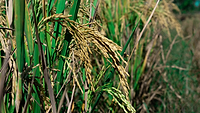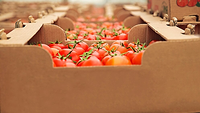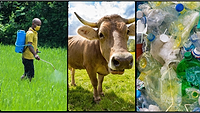Food Safety Risks of Dropped Produce

A recently-published literature review, which was federally funded and led by the Northeast Center to Advance Food Safety, evaluates the food safety risks of harvesting dropped and drooping produce. The study was prompted by widespread misunderstanding and noncompliance issues among growers regarding the Produce Safety Rule (PSR) of the Food Safety Modernization Act; the specific provision in question states that growers must not harvest dropped produce because it poses a microbiological contamination hazard. The review seeks to inform growers’ risk management decisions by investigating the risk factors that influence pathogen transferability when produce is dropped, as well as the risks associated with harvesting dropped or drooping produce that is covered under the PSR.
The PSR states that growers must not distribute dropped produce that is covered under the Rule. Covered produce includes produce that is dropped to the ground before harvest, but does not include crops that grow underground, grow on the ground, or are intentionally dropped to the ground as part of harvest. Dropped produce also includes drooping produce, which is defined by the review as produce that is grown off the ground, but touches the ground before harvest while still attached to the plant on which it grows. However, growers can harvest dropped produce in compliance with the PSR by demonstrating that the dropped produce will undergo an adequate kill step before distribution. Neither the PSR nor the U.S. Food and Drug Administration provide a specific definition of “ground” as it relates to dropped produce, however.
The review found ground moisture, contact time, and crop features to influence the contamination risk of dropped produce. Bare soil appears to present a lower risk of contaminating produce than plastic mulch, and in comparison to bare ground, mulch has shown that it may promote pathogen persistence in soil. At the same time, the review suggests that mulches may protect produce by limiting contact with contaminated soils. The review stresses the need for dedicated, scientific studies to be conducted on the food safety risks of produce damage and produce being dropped. More research in the area of dropped and drooping produce must be carried out in order to better inform growers with concrete recommendations for best practices.
Looking for a reprint of this article?
From high-res PDFs to custom plaques, order your copy today!






